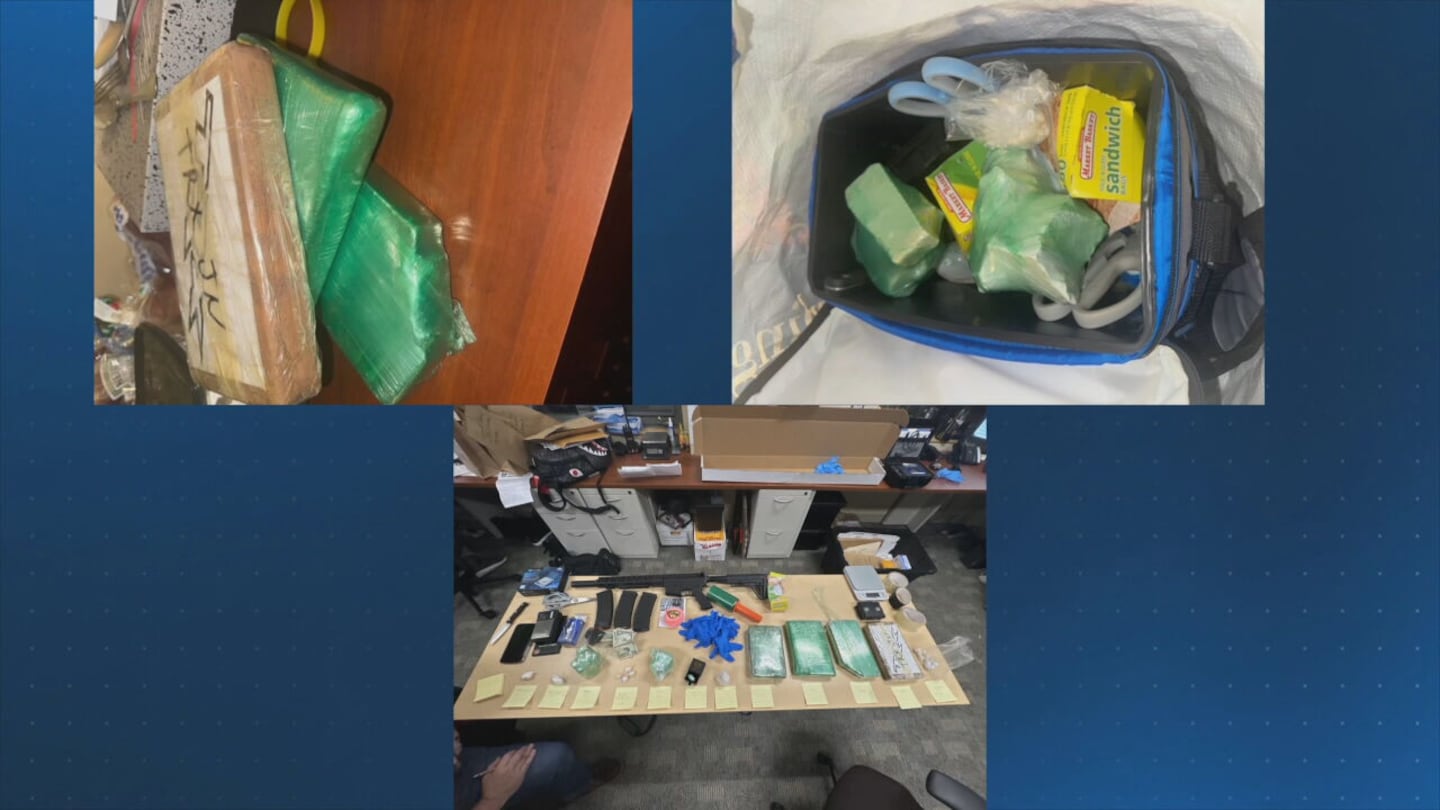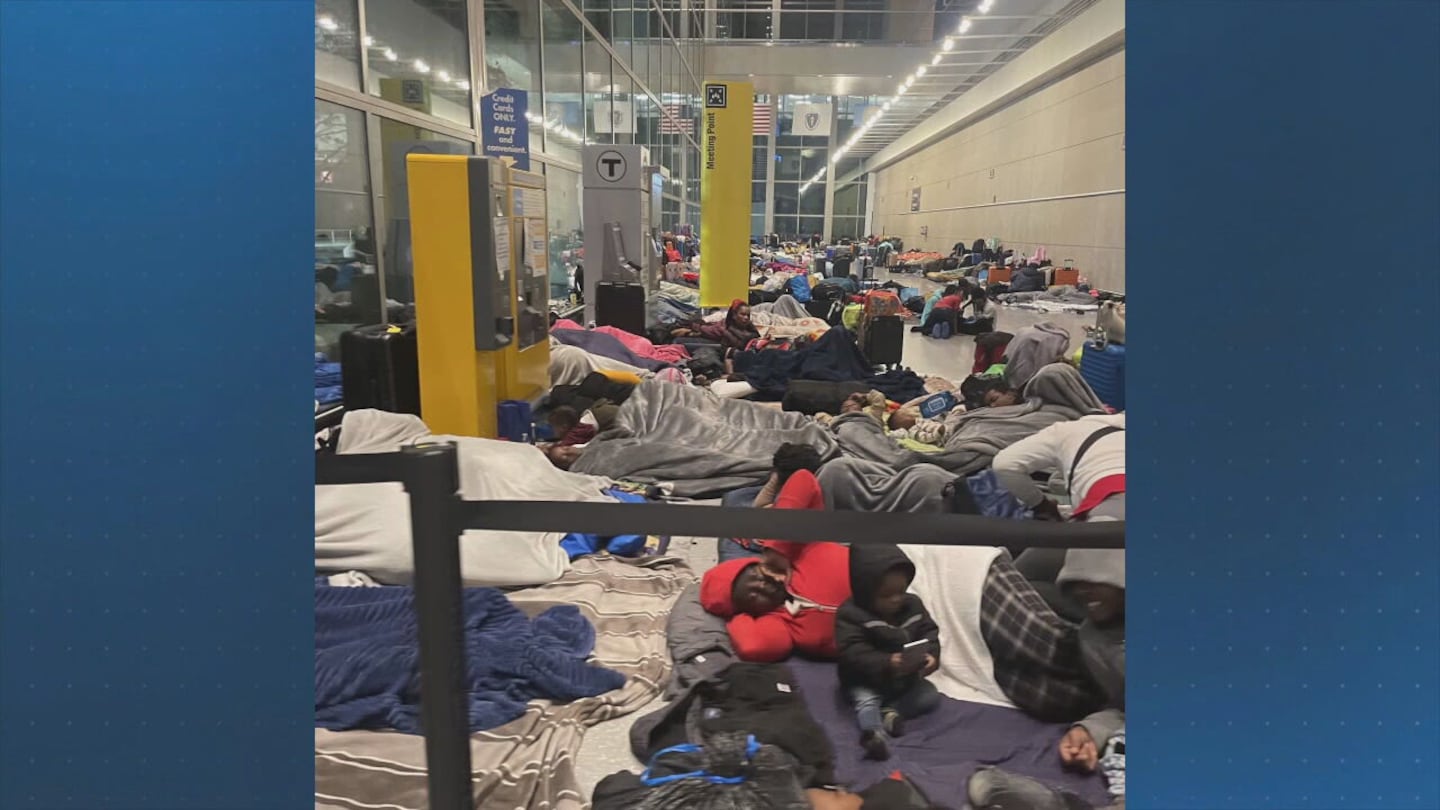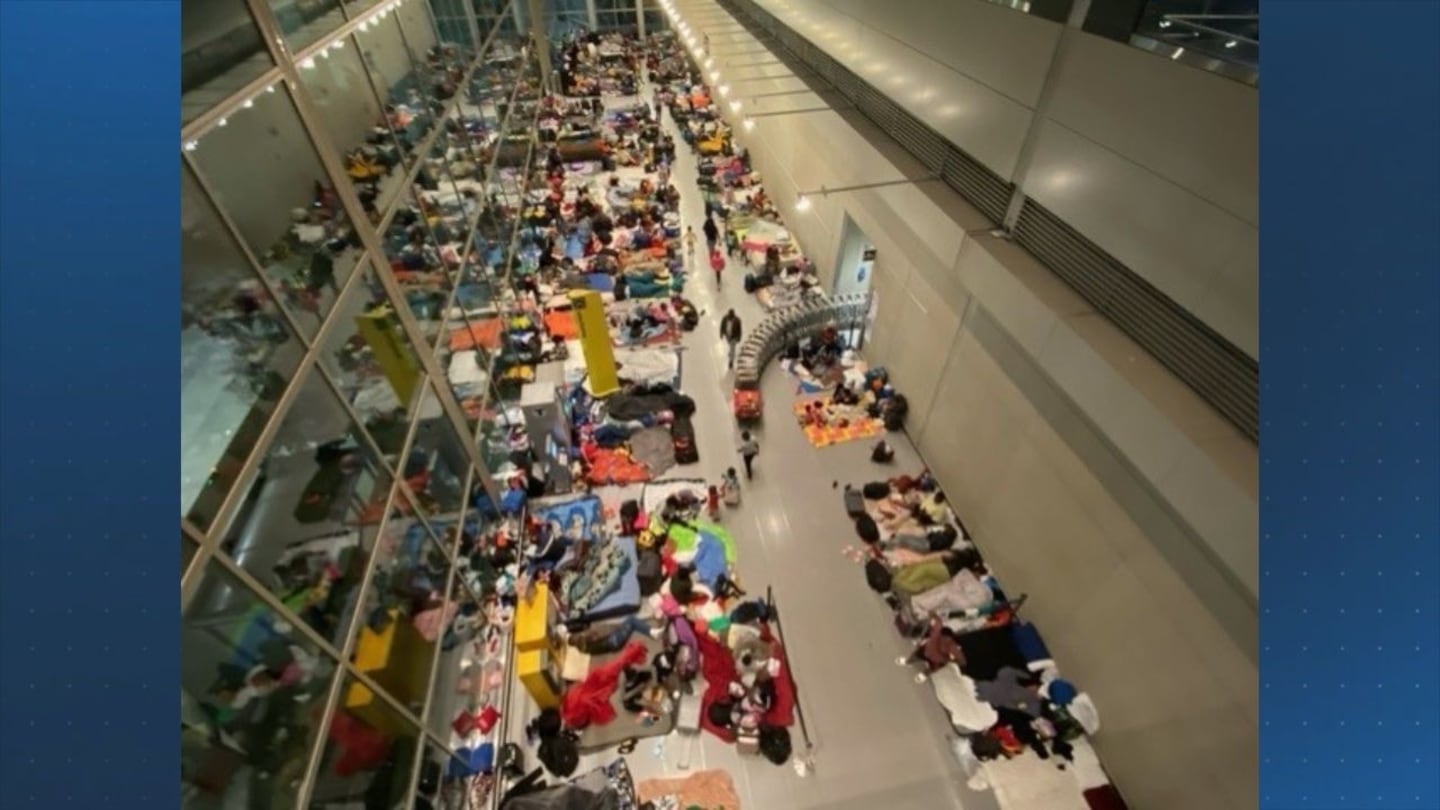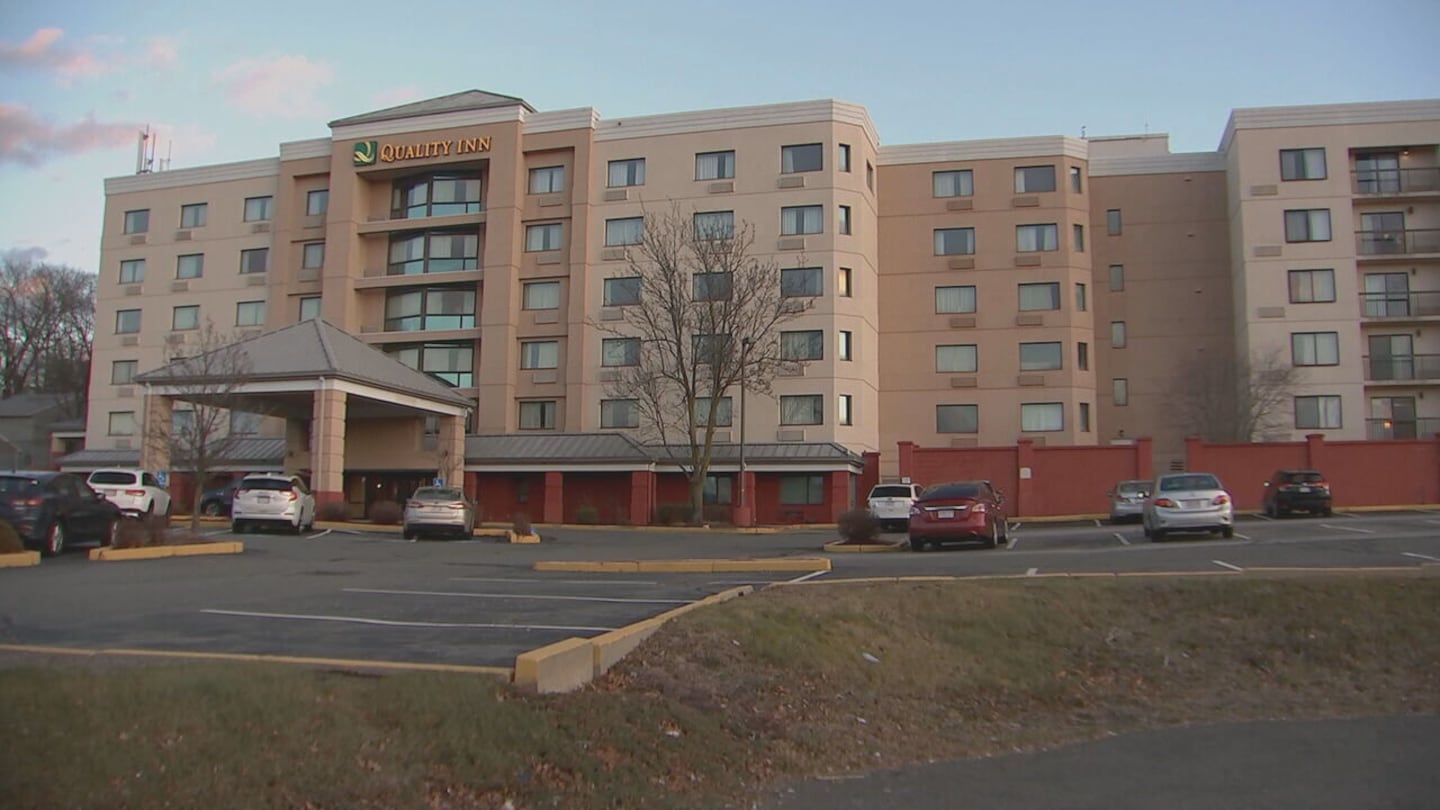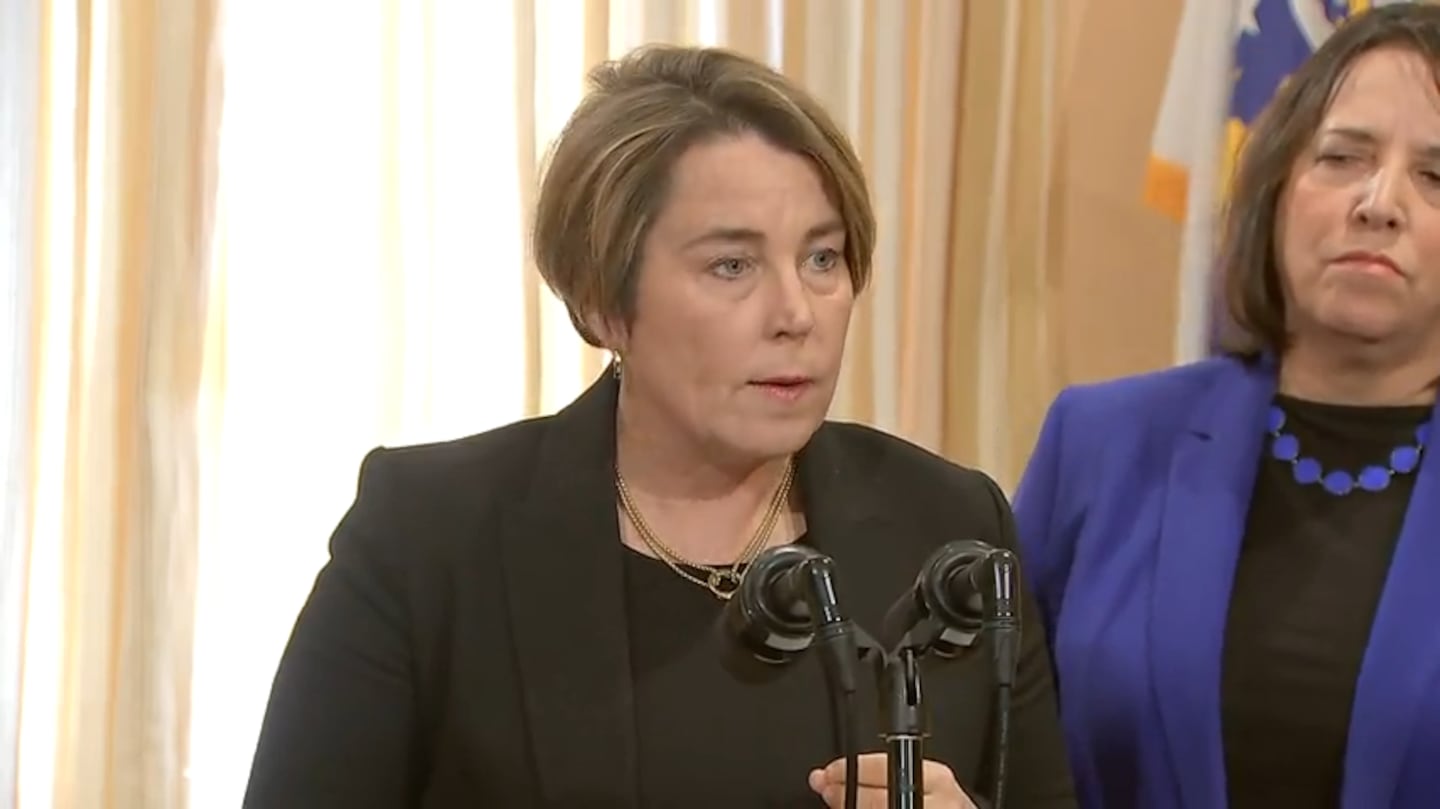BOSTON — Families staying in Massachusetts emergency shelters must be in the U.S. legally and must also undergo a criminal background check before staying at shelters, the governor said Wednesday.
Those are among the “significant changes” that Gov. Maura Healey proposed to the state’s Right to Shelter law on Wednesday amid a migrant crisis in Massachusetts.
News of the proposed changes broke after a Dominican national living at a state-run emergency family shelter in Revere was arrested last month for allegedly having an assault rifle and five kilograms of suspected fentanyl at the shelter.
Leonardo Andujar Sanchez, 28, a citizen of the Dominican Republic, is facing federal and local charges following his Dec. 27 arrest. He is charged by federal criminal complaint with one count of possession with intent to distribute more than 400 grams of fentanyl and one count of being an alien in possession of a firearm who has entered the U.S. unlawfully, Acting U.S. Attorney Josh Levy earlier said. He remains in custody.
And in May, a migrant was indicted for raping a 15-year-old girl at a Rockland hotel being used an emergency shelter in March.
Cory B. Alvarez, 26, of Haiti, pleaded not guilty in Brockton Superior Court on May 31 to the charges of aggravated rape of a child with a 10-year age difference and rape of a child by force, Plymouth County District Attorney Tim Cruz earlier said.
In March, the court ruled Alvarez to be dangerous after his arrest on March 13.
On Jan. 6, the governor ordered the inspection of all state-run emergency family shelters after news broke of Andujar Sanchez’s arrest for allegedly having the assault rifle and huge drug stash while living at the Quality Inn on Morris Street off Route 1 in Revere, which is being used as an emergency family shelter.
Healey said she submitted her new recommendations in a letter to the Senate President, Speaker, and House and Senate Ways and Means Chairs, urging the changes to be in the Emergency Assistance Supplemental Budget.
“I have evaluated the Right to Shelter Law and regulations as well as the operational burdens on the system. Based on that review, and in the face of continued inaction by Congress and no assistance from the federal government, I believe these changes are appropriate and needed to ensure the long-term sustainability of the state shelter system in a way that aligns with the original intent of the law,” Healey said Wednesday.
“In addition, these proposed changes will allow us to continue to ensure the safety of our system, support cities and towns in addressing the needs of unhoused families in their communities and put us on the path toward a more fiscally sustainable shelter system,” Healey said.
The proposed changes to the Right to Shelter law include:
- Strengthening criminal background checks. Healey’s proposal would require all applicants to disclose criminal convictions in Massachusetts or elsewhere. It will also codify the Executive Office of Housing and Livable Communities’ policy of conducting a CORI check prior to placement.
- Implementing a statutory requirement of residency and intent to remain. Currently, any intent to remain in Massachusetts may be proven solely through self attestation. This change would require that anyone receiving EA show an intent to remain in Massachusetts, either through independent documentary verification or through three months of physical presence in the state.
- Eliminating presumptive eligibility. Under existing law, shelter applicants are presumed to be eligible for shelter and receive shelter benefits prior to producing the necessary documentation. Under Healey’s proposals, shelter applicants would be required to verify their identity, residency, and status prior to placement.
- Changes to eviction eligibility criteria. Currently, families may be eligible for shelter based on several types of no-fault eviction, but without geographic limitation. As a result, people who have been evicted in other states may come to Massachusetts for shelter. The administration proposes requiring evictions to occur in Massachusetts to support eligibility, eliminating the scenario where a neighboring state eviction leads to an individual coming to Massachusetts to seek EA shelter benefits.
- Requiring lawful status for all members of families with rare exceptions. Healey’s proposal would require all family members to show they are U.S. citizens or lawfully present in the U.S., with the rare exception for those households that include a child who is a U.S. citizen or a lawful permanent resident.
Massachusetts became the only state in the country to adopt a Right to Shelter law 40 years ago, Healey said. The law was designed to provide housing for families in need, specifically pregnant women and children experiencing homelessness.
For the past three years, thousands of families have been arriving in Massachusetts from other states and other countries seeking shelter, officials said.
In June, state officials announced that notices to families reaching length-of-stay limits in the state’s emergency shelter system will begin going out in July, amid a migrant crisis in Massachusetts.
In March, state officials announced new requirements for migrants. The state’s Emergency Assistance family shelter system has been operating at capacity for months amid a large influx of migrants to the Bay State. Dozens of migrants have been often seen sleeping overnight inside Logan International Airport.
The Emergency Assistance program is for families with children or pregnant women who are experiencing homelessness, state officials said. Approximately half of families in the state’s Emergency Assistance system are new arrivals to Massachusetts.
Last fall, state officials said that the system could no longer safely or responsibly expand and the state established a waiting list. Families who qualify for Emergency Assistance and are on the waiting list are eligible to stay at the state’s “safety-net sites.”
‘Unexpected influx’: Norfolk officials share concerns about turning former state prison into shelter
In 2023, Healey announced the system reached capacity at 7,500 families.
In November, Healey announced that her administration will phase out the use of hotels and motels as shelters by the end of 2025.
In a statement Wednesday, MassGOP Spokesperson Logan Trupiano called the governor’s proposed reforms “shocking.”
“These reforms are shocking—not because they’re being implemented, but because they should have been put in place at the onset of this crisis,” Trupiano said. “It is incomprehensible that we’ve been housing adults with children, and those adults weren’t even required to complete a CORI check.”
“The introduction of an ‘intent to remain in Massachusetts’ rule is yet another absurd new policy,” Trupiano said. “It should be the complete opposite. We need to ensure that emergency shelters are reserved for long-term Massachusetts residents—not individuals from other states or countries seeking to take advantage of our broken system.”
“The Governor is now admitting that we haven’t been verifying people’s identities before housing them with vulnerable families? What is going on here?” Trupiano added. “And all this time, the Healey-Driscoll Administration failed to verify whether those in the shelters are even legally in the United States?”
These proposed changes follow Healey’s recent announcement requiring CORI checks on all Emergency Assistance shelter applicants in addition to background checks already occurring and conducting inspections at all shelter sites.
Former Boston Police Commissioner Ed Davis will oversee the investigation that will take a closer look at every shelter across Massachusetts.
Inspections have reportedly already begun at every location across the Bay State. Healey claims roughly 22,000 individuals are in the state’s shelter system.
The supplemental budget Healey filed earlier this month also proposed reducing the length of stay at EA shelters from nine months to six months.
Since November 2023, Healey said the state has helped more than 6,000 shelter residents get work authorizations and secured thousands of job placements. More than 4,500 families have left shelters in the past year, and 430 families have successfully exited temporary respite centers since Aug. 1.
More than 700 families have been diverted from Emergency Assistance shelter in the past year as a result of services that help families avoid shelter and quickly get back on their feet, state officials said.
But Trupiano said not enough has been done to address the migrant crisis.
“The handling of the migrant crisis is far worse than anyone could have imagined,” Trupiano said. “The Healey-Driscoll administration should be ashamed for misleading Massachusetts residents and forcing them to bear the cost of this government made humanitarian crisis. This situation is completely out of control.”
This is a developing story. Check back for updates as more information becomes available.
Download the FREE Boston 25 News app for breaking news alerts.
Follow Boston 25 News on Facebook and Twitter. | Watch Boston 25 News NOW
©2025 Cox Media Group


